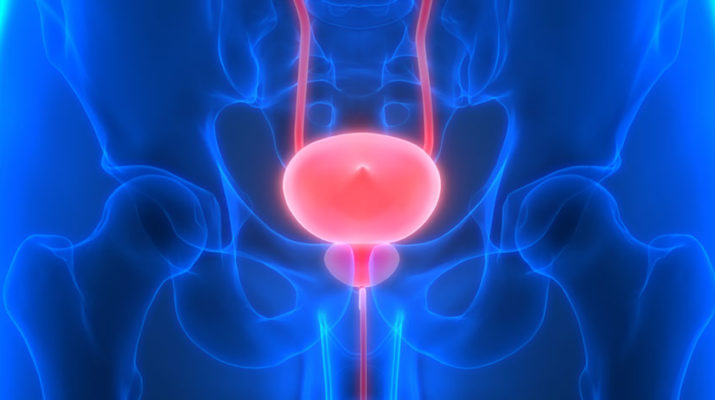Like many other tissues of the body, bladder muscles get weaker and less stretchy with age, causing a series of problems
By Deborah Jeanne Sergeant
The aging process is unkind to most of the body. The bladder is no exception. To support bladder health, you can take steps to mitigate the effects of aging.
Like many other tissues of the body, the bladder’s tissue gets weaker and less stretchy with age. That means that the bladder won’t hold as much and that the bladder won’t completely empty during urination. Some older adults purposefully hold their urine in an attempt to “strengthen” it.
“When adults go to the bathroom, they should try to empty their bladders the best they can,” said physician David Albala, affiliated with AMP Urology.
To avoid exacerbating the issue, he advises attempting to completely empty the bladder at least every three to four hours.
Men may experience decrease force of stream, urgency and increased frequency, which could indicate enlarged prostate or another issue.
“If you have those types of symptoms, see a urologist to get your prostate examined,” Albala said. “In the middle of that work-up, they may do testing to see how well the bladder is emptying.”
Women often experience urinary leaking and incontinence, since childbearing weakens the pelvic floor muscles, which support the bladder. The effect can manifest years later. Albala said that women should consider performing Kegel exercises to strengthen the pelvic muscles. Consulting with a physical therapist that specializes in incontinence may also help.
Lifestyle changes can help maintain better bladder health. Albala recommends drinking six servings of eight ounces of fluids per day, preferably water. He also said that staying active and eating a balanced diet should help.
Alcohol and coffee and other sources of caffeine can irritate the bladder, so reducing intake can improve bladder function.
“Bladder cancer’s biggest risk is smoking,” Albala said. “It’s not the most common cancer. It’s about 5% of all cancer — a very low number — but it can be hard to cure. There are gene mutations that can contribute, but smoking, workplace exposure to industrial chemicals, and some medicines increase risk. Clearly, smoking increases the risk by two to three times.”
Caught early, bladder cancer has an 80% five-year survival rate.
Albala recommends weight loss, which he said can help with incontinence in obese women.
Lifestyle changes can also reduce risk of urinary tract infections (UTIs). Physician Joseph Jacob, assistant professor of urology with SUNY Upstate Medical University, said that for women, hygiene, wiping front to back and urinating after intercourse, can decrease UTIs.
“Constipation can actually cause bad urinary problems,” Jacob said. “The bowel and bladder are related. Constipation can cause incomplete elimination of urine.”
Maintain regular bowel movements by eating more foods rich in fiber such as whole grains and whole fruits and vegetables or adding a fiber supplement to the diet.
Other medical conditions can exacerbate bladder problems, such as diabetes, which can affect the nerves that control the bladder and alter the sensation that the bladder is full. Some medications can make a difference in bladder health and urination, too.
What Happened to Urine Samples?
Routine urine samples? Not anymore. As new research emerges on the lack of benefits of regularly sampling urine, fewer providers request urine samples for patients lacking symptoms.
“A lot of people think that whenever you have bacteria in the urine or if it has a strong odor or if it’s cloudy there’s an infection,” said geriatrician Sharon Brangman, professor of medicine and head of the geriatric department at SUNY Upstate Medical University. “We know now that if you have an infection that needs treatment, you need to have 102 fever or significant pain when you urinate and any of the following: going to the bathroom a lot, urgency, pain in the lower part of the belly, any blood in the urine, a sudden onset of incontinence and any pain in the lower back area.”
She added that odor could reflect a change in diet or medication and color may change depending upon the amount of fluids consumed.
Over-prescribing antibiotics for urinary issues — or any other reason — has led to the rise of antibiotic resistant “super bugs” that become very difficult for physicians to treat.
“We have to be very careful about using antibiotics,” Brangman said. “It’s common to have bacteria in the urine, especially if you have diabetes. As physicians, we realize now we should not routinely check urine if there are no symptoms.”

